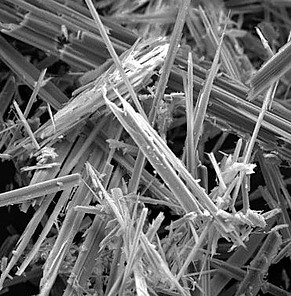With the advanced technologies in water filtration plants and the stringent drinking water standards imposed by the various Health Organizations, the answer should be YES. However, with increasing industrialization, aging infrastructures, and climate change, events potentially threatening your potable drinking water are on the rise. This said, shouldn’t we be taking additional measures to protect ourselves and the ones we love from drinking contaminated water even if it is temporary?
I will cite three events that happened early in 2023, as examples of events that potentially impacted our potable tap water.
Train Derailment Causing Ohio River Toxic Spill (Feb 2023)

A 150-car train derailment occurred near the Ohio town of East Palestine; a subset of them (20 cars) were carrying hazardous materials. The Newsweek article found here describes the details and how there was a risk of local water supply contamination for 5M People. Further to this, the Environmental Protection Agency (EPA) in the US listed the contaminants that may have spilled into the river to be:
- Vinyl Chloride – is carcinogenic and can cause other health issues.
- Ethylene glycol monobutyl – ingestion can cause headaches and vomiting.
- Ethylhexyl acrylate – can cause skin and respiratory irritation
- Butyl acrylate – can cause skin, eye, and respiratory irritation.
Although time would remedy the issue since the contaminants would disperse as the river flowed, it posed a real danger to the public for a while.
Is Asbestos Getting into Canada’s Drinking Water (Mar 2023)?

W5 in Canada recently reported the aging asbestos cement pipes used across Canada could pose potential health hazards if the leeching asbestos fibres ended up in your tap water. The details of this investigation can be found here. It was found that more than 90% of the over 100 towns, districts, and municipalities polled across Canada said they used asbestos cement pipes but it was not clear how much of that water was intended for our taps. Regardless, there seems to be the potential for asbestos fibres to get into our drinking water. Ingesting these fibres could elevate the risk of stomach and other gastrointestinal-related cancers.
Release of Hazardous Material into Mill Creek in Bristol, PA (Mar 2023)

It was reported that a chemical spill occurred near Bristol, Pennsylvania dumping for than 8,000 gallons of latex finishing material into Otter Creek which feeds the Delaware River and supplies drinking water to over 15M people. A pipe rupture at a chemical plant was the source of the spill. More information on this spill can be found here.
Officials say that acrylic latex polymer is non-toxic to humans, but do you want to take their word for it without concrete evidence?
What Can You Do to Protect Yourself?

You can sense that the events threatening our drinking water are on the rise. I also wonder how many unreported cases there may be which is somewhat concerning. What can we do to help mitigate this concern? One suggestion is that we add another layer of protection between the source and our taps with under sink water filtration/purification.
Looking at the Ohio River Spill event, if you had a simple water filter installed, it would successfully remove Vinyl Chloride. If you wanted to go a step further and remove Ethylene glycol monobutyl, Ethylhexyl acrylate, and Butyl acrylate you would need to install a reverse osmosis (RO) filter but it would be more expensive which may or may not be worth it.
With the concern in the second event, since asbestos fibres can be as small as 0.7 to 90 microns, any water filter that can filter contaminants less than 0.7 microns would effectively remove these fibres.
If you want to learn more about under sink water filters please click here.
Conclusion

Well, there you have it. Water is precious and essential to human life. If we can add an under sink water filter or RO filter to give us that extra peace of mind, isn’t it worth it? It may not be perfect but then again, nothing is. Water bottles can also be a solution but this can be both costly and a negative contributor to climate change (due to the use of fossil fuels for disposable plastics).
Should you have any questions on the above, please leave a comment and I will do my utmost to respond to you promptly.
